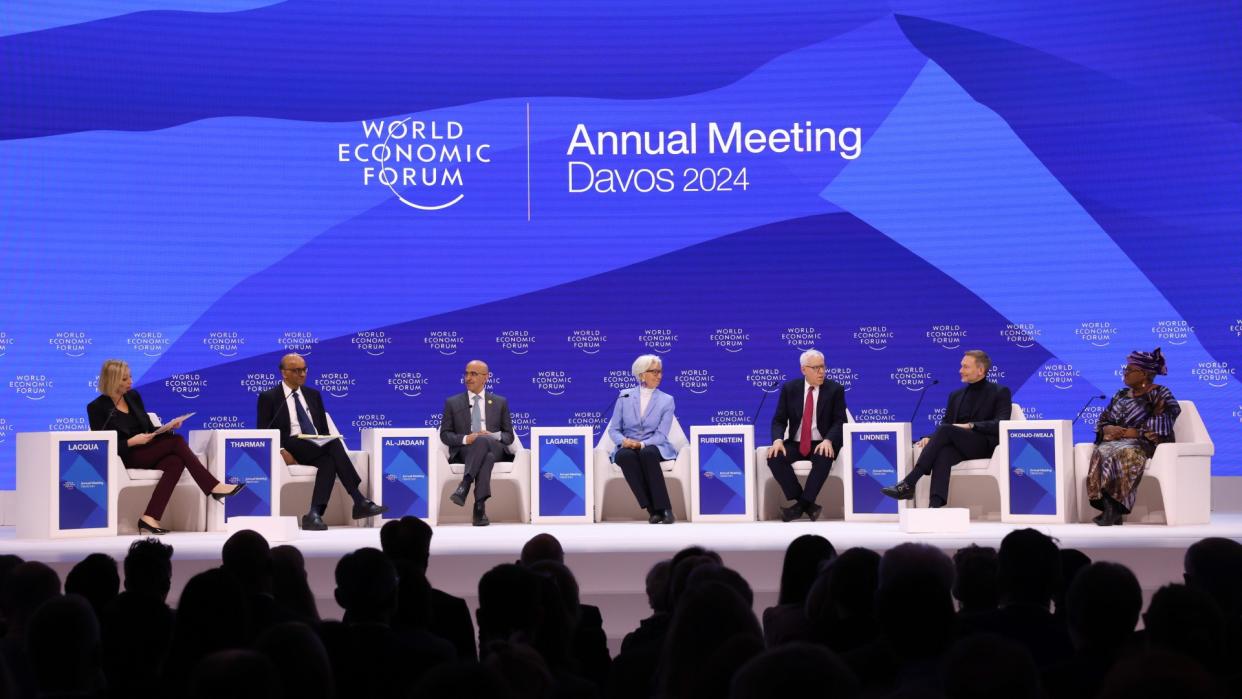Geopolitics and the economy in 2024

- Oops!Something went wrong.Please try again later.
- Oops!Something went wrong.Please try again later.
- Oops!Something went wrong.Please try again later.
The World Economic Forum at Davos was "the first barometer for global sentiment" at the start of a turbulent year, said Mehreen Khan in The Times.
The event was dominated by politics – particularly war in Ukraine and Gaza. In a departure from recent years, central bankers were "in short supply", said the paper's economics editor: only the European Central Bank president, Christine Lagarde, was scheduled to appear, while her counterparts from the US, Britain and Japan stayed away. Meanwhile, any complacency about inflation being vanquished in richer economies is beginning to look premature.
"After months of easing price rises", UK inflation unexpectedly rose to 4% in December, said Kate Beioley in the Financial Times. The culprit appears to be "a jump in tobacco prices after a recent duty increase". But it has revived concerns among economists about the potential impact of an external shock.
'Living in a new reality'
Worries centre on the disruption of a vital shipping route through the Red Sea by Houthi rebels in Yemen, used by 12-15% of global trade, said Dearbail Jordan on BBC Business. Major shipping firms are rerouting their vessels around Africa; but there's no reason to panic yet, according to Allianz's chief economic adviser, Mohamed El-Erian.
"In absolute terms" the disruption "is nothing compared to what we had in 2021 and 2022" when Covid disrupted shipments, he said. But the situation is still precarious. "We are living in a new reality where the supply side of the global economy is much more fragile, which means inflationary tendencies are greater than they used to be."
Similar uncertainty is swirling around the oil price, said Brian Swint on Barron's. Brent crude is up by more than 2% since the start of the year but has remained relatively stable at around $79/barrel. Conflicting factors are in play.
"Worries about attacks on tanker ships in the Red Sea" have so far been trumped by wider concerns about weakening global energy demand. That could easily change.
'Feelgood factor'
"Everyone has a plan until they get punched in the face," as the boxer Mike Tyson once noted. The prime minister should bear that in mind as he ponders when to hold the next election, said Liam Halligan in The Sunday Telegraph.
Rishi Sunak plans to wait as long as possible "in the hope repeated rate cuts and a steady easing of the cost-of-living crisis" throughout 2024 will create a "feelgood factor", said Halligan, also the economics and business editor of GB News.
But there's a growing risk of being punched in face by geopolitics. The spread of conflict to the Strait of Hormuz – the route for around 25% of hydrocarbons used daily and "the windpipe of the global economy" – could prove a real "pinchpoint". The international risks have risen significantly – "and could soon upend British politics".

